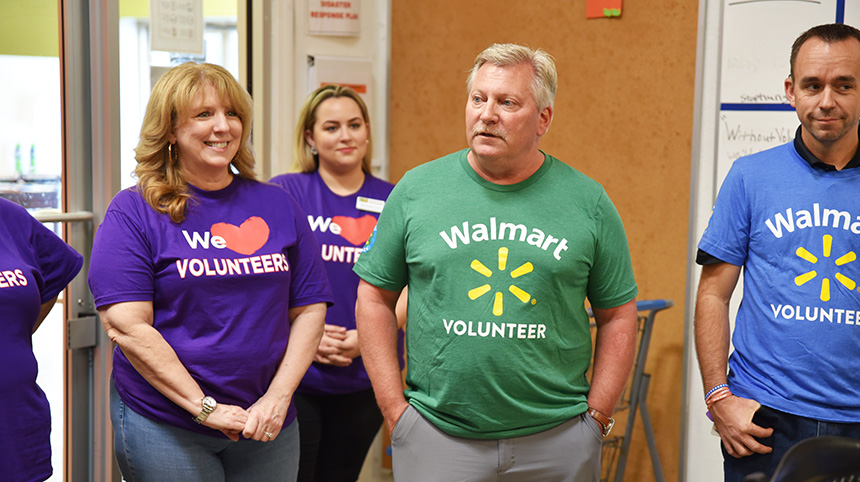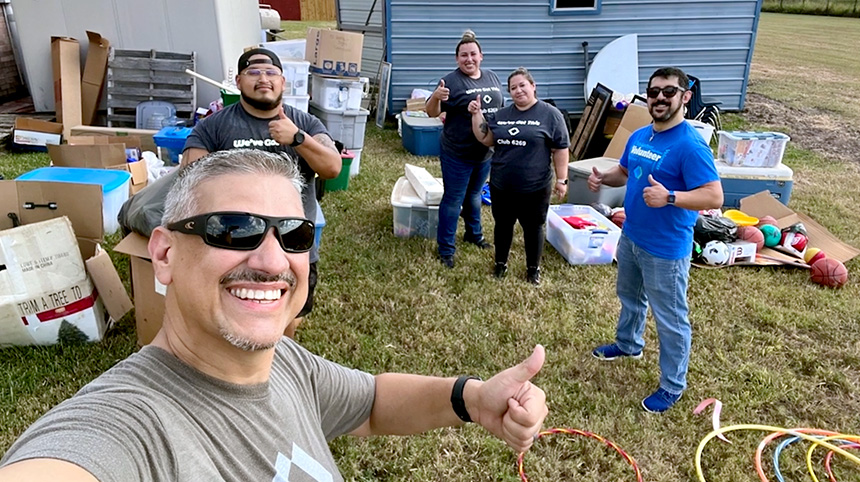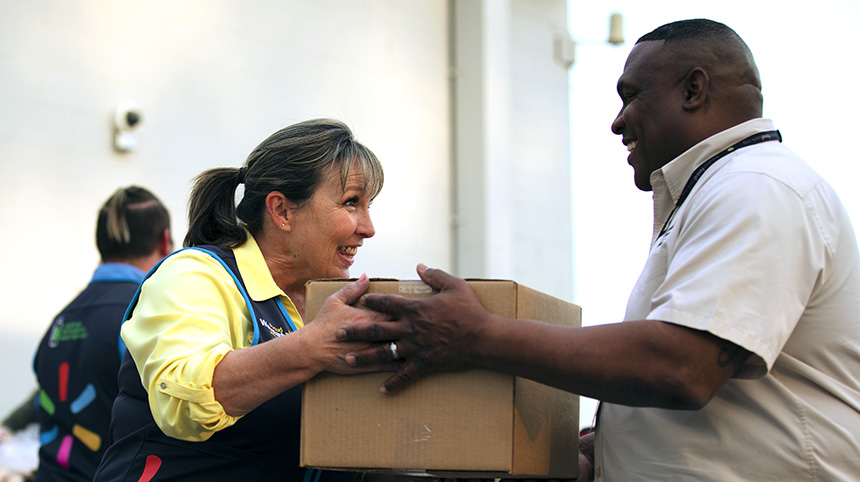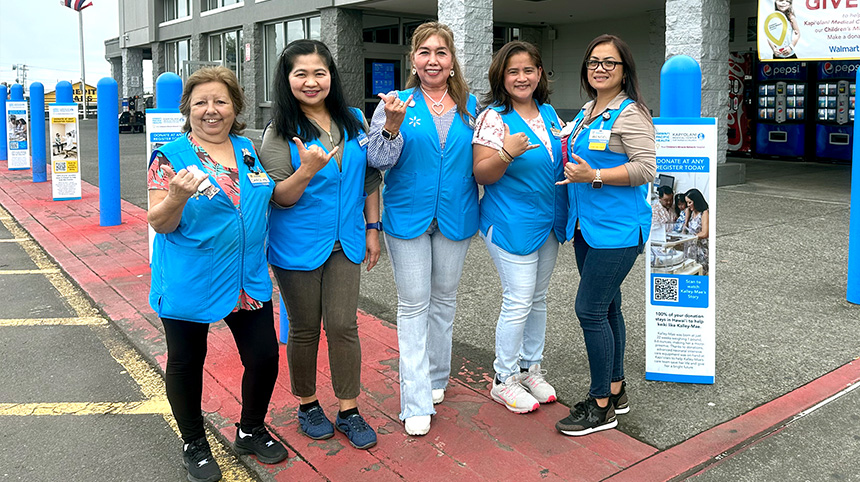With roots in a small family restaurant, this Nashville associate knows the power of fighting hunger in the community.

Wade Hunt came from modest beginnings. His childhood in the small town of Cleveland, Tennessee, lacked many of the comforts he enjoys today. “But I had a family that loved and provided for me, and when times were tough for our neighbors, we provided for them, too,” he says.
Wade’s family owned a small restaurant — a beloved spot that served the Cleveland community for 60 years. It was there that he experienced what it means to care for your community firsthand.
“If my grandmother or great aunt noticed someone didn’t show up for church or heard of a family having tough times, they’d go to the restaurant when it was closed, cook meals and drive around town making deliveries,” Wade shares. “My grandmother was the heart of that restaurant, and she had a real passion for helping those in need.”
Decades later, Wade's upbringing inspires him as he serves families in communities across Tennessee.
Now based in Nashville as a Walmart Market Manager, Wade spends much of his free time advocating for those facing food insecurity. He has worked with Feeding America food banks for 12 years, and he is currently on the board of Second Harvest Food Bank in Nashville, “where he supports the collection and distribution of the millions of meals Second Harvest provides to more than 46 counties across Middle Tennessee.”

The 2024 Fight Hunger. Spark Change. campaign runs through April 29. Learn how this month-long drive is helping provide nutritious meals to those who need them most and bridging the gap between health, nutrition and community.
With the 2024 Fight Hunger. Spark Change. campaign underway, Wade took a moment to expand on his passion for tackling hunger at the community level. He also explains the differences between food banks and food pantries and why giving directly to your local food pantry might not always be the best bet.
On his advocacy roots:
My passion for fighting hunger goes back to my teenage years, when we would cook meals in our family restaurant for those in need. What I found then was that the face of hunger wasn’t always what I thought it was. And it wasn’t always evident just by looking at someone.
When I got the opportunity to join my first food bank board in an official capacity, it was so rewarding. Our food bank here in Nashville serves 46 counties. With a footprint that big, we can provide meals for hundreds of communities.
Why volunteering can change your whole perspective:
At least twice a year, I take associates from my market to volunteer at Second Harvest. It feels good to sort and pack food or to load commercial trucks with deliveries. But I’ll never forget when the team spent a day volunteering at a mobile food pantry. Instead of loading boxes, we were handing out food, groceries and meals to people directly.
Suddenly, there were faces attached to the need, and it made such an impact on the team that the next time a volunteer day rolled around, we had associates from all nine Walmart stores in our market asking if they could join. More than 75 associates from my market showed up, and we handed out food to more than 400 families come through the day.
The difference between a food bank and a food pantry:
A food bank serves as a central hub, safely storing and distributing large quantities of food to local programs like food pantries. These banks vary in size, with some as large as major wholesale clubs, and they receive donations from individuals, retailers, groceries and restaurants to keep their shelves stocked. Each food bank operates within a specific area; for instance, Second Harvest covers a whopping 46 counties in Tennessee.
A food pantry serves as a front-line resource for individuals facing food insecurity, offering free meals and groceries to those in need. With supplies sourced from food banks, these pantries play a significant role in nourishing countless individuals on a weekly basis! Given the unique dynamics of each community, there are many different types of food pantries — they can be set up in schools, churches, standalone buildings and even mobile vehicles.
By partnering with food banks, food pantries can ensure that they receive consistent and appropriate supplies, and also reduce the risk of spoiled or inadequate food donations. It’s truly a symbiotic relationship. Donating food to the food bank or agency partners your store is matched with helps ensure your support goes where it’s needed most!
On fighting hunger and sparking change:
I work with associates across nine stores in the Nashville region, and I’ve found that one of the best ways to cheer on the Fight Hunger. Spark Change. campaign is by inviting them to volunteer with me at a local food pantry.
When you can put a face to the cause and quantify how it impacts them in a real way, it’s really powerful. I also think educating associates and customers to the fact that while this may be a national campaign, it directly impacts your own community. When you give online or in a store, or you buy supporting products, that money goes to the food bank nearest you.
Walmart and Sam’s Club empower associates like Wade to volunteer and give to the causes that mean the most to them. Check out the new Spark Good Associate Platform to explore volunteer opportunities and log your volunteer hours.






